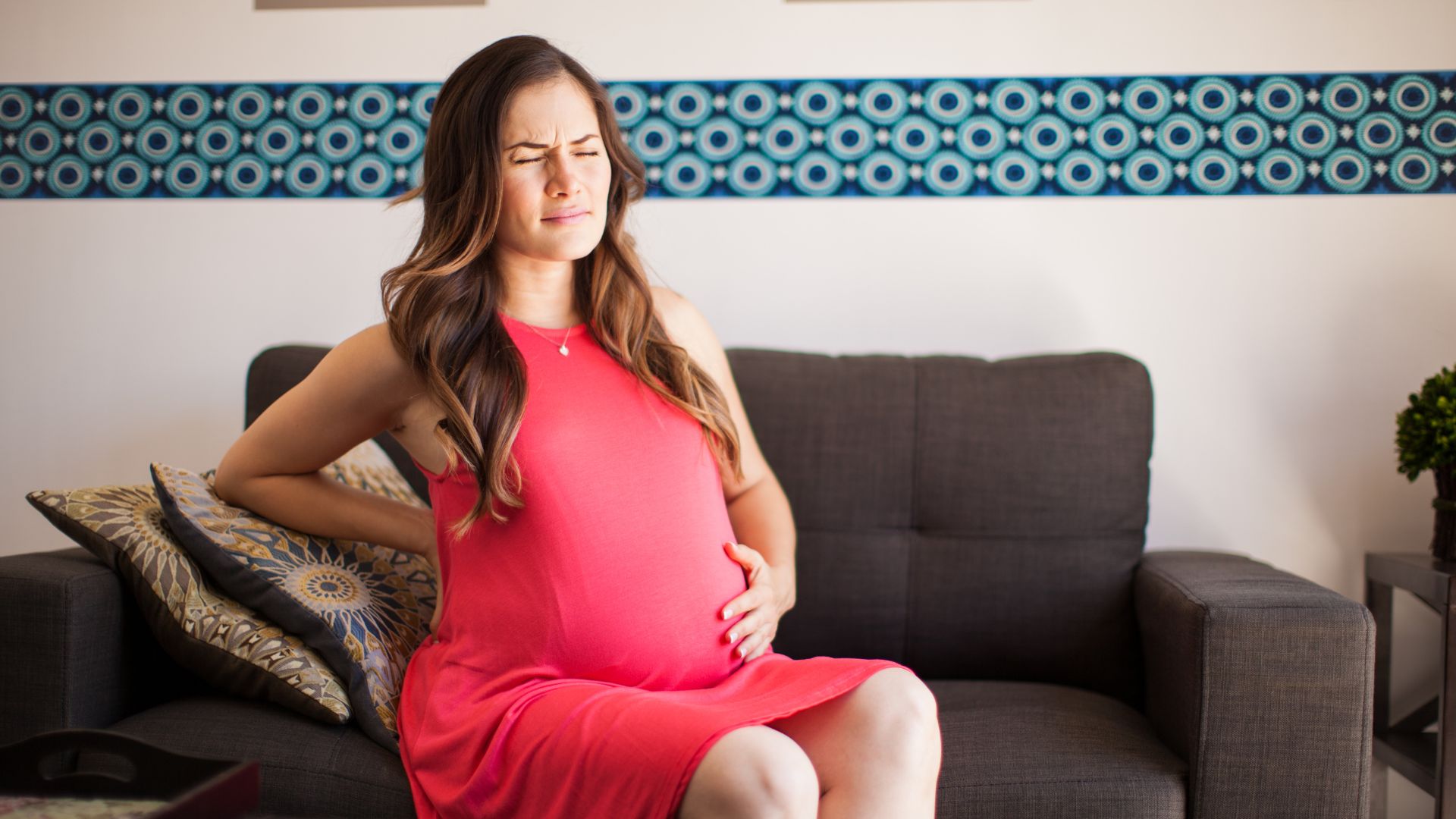
Your Guide to Coping with Chronic Pain While Pregnant
Pregnancy is a transformative and joyous experience for many women, but it can also come with its share of physical discomfort and challenges. For women who already experience chronic pain conditions before becoming pregnant, the journey through pregnancy can be particularly complex. In this comprehensive blog post, we’ll delve deep into the topic of chronic pain during pregnancy, discussing its causes, management, and the importance of seeking medical guidance to ensure a safe and healthy pregnancy.
Understanding Chronic Pain During Pregnancy
Chronic pain is defined as persistent pain that lasts for an extended period, typically exceeding three months. It can result from various underlying conditions, such as:
- Back Pain: Conditions like chronic lower back pain or sciatica can cause discomfort, which may intensify during pregnancy due to the added strain on the back.
- Fibromyalgia: Women with fibromyalgia may experience heightened pain sensitivity, fatigue, and muscle aches during pregnancy.
- Arthritis: Rheumatoid arthritis or other forms of arthritis can lead to joint pain and inflammation, which may fluctuate during pregnancy.
- Headaches: Chronic migraines or tension headaches can persist during pregnancy, although their frequency and intensity may vary.
- Pelvic Pain: Conditions like pelvic girdle pain or symphysis pubis dysfunction can cause significant discomfort during pregnancy.
Common Causes of Chronic Pain During Pregnancy
- Hormonal Changes: Hormonal fluctuations during pregnancy can affect joint stability and the perception of pain.
- Weight Gain: As pregnancy progresses, the growing uterus and increased weight can strain the back, hips, and pelvis, exacerbating pre-existing pain.
- Postural Changes: Pregnancy alters a woman’s posture, which can put additional stress on the spine and musculoskeletal system.
- Stretching of Ligaments: Hormones released during pregnancy can loosen ligaments, potentially contributing to joint instability and discomfort.
- Stress and Anxiety: Emotional stress and anxiety can exacerbate chronic pain conditions.
- Sleep Disturbances: Many pregnant women experience sleep disturbances, which can further worsen chronic pain.
Managing Chronic Pain During Pregnancy
- Consult Your Healthcare Provider: If you have chronic pain and plan to become pregnant or are already pregnant, it’s crucial to consult your healthcare provider early in your pregnancy journey. They can help you create a tailored pain management plan.
- Medication Review: Review your current medications with your healthcare provider. Some pain medications may need to be adjusted or changed to ensure their safety during pregnancy.
- Physical Therapy: Physical therapy can provide exercises and techniques to help manage pain, improve posture, and strengthen muscles.
- Supportive Devices: The use of braces, belts, or maternity support garments can help alleviate pain in specific areas.
- Heat and Cold Therapy: Heat pads or cold packs can provide temporary relief for localized pain.
- Stress Management: Practices like mindfulness meditation, relaxation exercises, or therapy can help manage stress and anxiety, which can worsen chronic pain.
- Sleep Hygiene: Establishing good sleep habits is essential during pregnancy, as lack of sleep can exacerbate pain.
- Diet and Nutrition: A balanced diet with adequate nutrients can support overall health and potentially reduce inflammation. Consult with a nutritionist for guidance.
- Alternative Therapies: Some women find relief through complementary therapies such as acupuncture, chiropractic care, or massage. However, always consult with your healthcare provider before starting any alternative treatment.
- Emotional Support: Seek support from friends, family, or support groups. Sharing your experiences with others who understand can be invaluable.
- Prenatal Classes: Consider enrolling in prenatal classes that focus on pain management techniques, relaxation, and birthing positions that can minimize discomfort during labour.
The Importance of Medical Guidance
Pregnancy is a unique and delicate period in a woman’s life, and managing chronic pain during this time requires careful consideration of both the mother’s and the baby’s well-being. It’s crucial to work closely with your healthcare provider, who can tailor a pain management plan that is safe for you and your developing child.
In some cases, your healthcare provider may recommend a team approach, involving specialists such as obstetricians, pain management experts, physical therapists, and mental health professionals to ensure a comprehensive and safe approach to managing chronic pain during pregnancy.
In conclusion, chronic pain during pregnancy is a challenging but manageable condition. With the right support and guidance from healthcare professionals, you can navigate this journey while prioritizing both your pain management and the well-being of your unborn child. Always remember that your healthcare provider is your primary resource for guidance and support throughout this transformative experience. By seeking early and comprehensive care, you can strive for a safe, comfortable, and healthy pregnancy despite the challenges posed by chronic pain
Unveiling the Enigma of Chronic Pain: Strategies for Understanding, Management, and Treatment
Chronic Pain: Understanding, Management, and Treatment Pain is a universal human experience, serving as a crucial…
Read MoreUnlocking Relief: Mastering Chronic Pain Management Strategies
Living with Chronic Pain: Understanding Chronic Pain Management Techniques Pain is a universal human experience, serving…
Read MoreUnlocking the Mystery of Living with Chronic Pain: Understanding the Complexities
Living with Chronic Pain Pain is a complex and multifaceted sensation that can vary in intensity,…
Read MoreUnlocking the Secrets of Chronic Pain Management: A Comprehensive Guide
Living with Chronic Pain: Understanding Chronic Pain Management Pain is a complex and multifaceted experience that…
Read MoreUnlocking the Mystery of Chronic Pain: A Comprehensive Guide to Chronic Pain Management
Living with Chronic Pain: Understanding Chronic Pain Management Chronic pain is a complex and challenging condition…
Read MoreUnraveling the Complexity of Chronic Pain: Insights into Understanding and Managing the Journey
Living with Chronic Pain: Understanding and Managing the Journey In a world where pain is often…
Read MoreUnveiling Chronic Pain: Decoding Types and Therapies
Understanding Chronic Pain: Types and Treatments Chronic pain is a complex condition that can have a…
Read MoreExpert Guide: Mastering Chronic Pain Management for a Better Quality of Life
Living with Chronic Pain: A Guide to Chronic Pain Management Pain is a universal human experience…
Read MoreThe Ultimate Guide to Managing Chronic Pain: Understanding, Treating, and Overcoming
Living with chronic pain is a daily struggle for millions of individuals around the world. The…
Read MoreMastering Chronic Pain: Insights on Understanding and Managing
Chronic Pain: Understanding, Managing, and Living Well Pain is an intricate and often overwhelming sensation that…
Read MoreGoing on Holiday With Chronic Pain – Tips for a Comfortable Journey
Traveling can be an exciting and enriching experience. Whether you're exploring a new city, relaxing on…
Read MoreThe Link Between Trauma and Chronic Pain
Chronic Pain and Trauma Related Conditions Chronic pain and trauma related conditions can have a significant…
Read More
